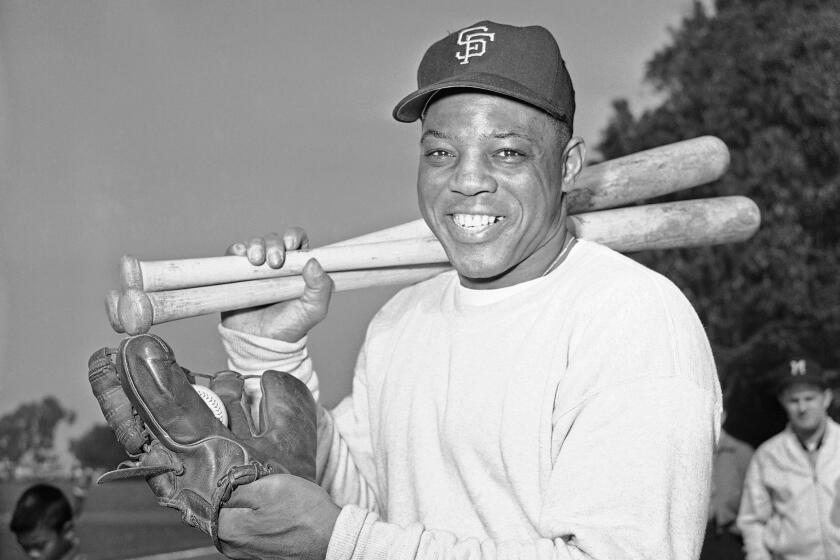Of Motherhood and Letting Go : The parent of an adult finds it difficult to be relegated to the sidelines when her child faces a serious illness.
My daughter called moments after she returned home from her consultation with her doctor: She has diabetes. The dry throat, the persistent weariness, the bouts of blurred vision were not something she could fix by taking a couple of days off and attacking with antibiotics or massive doses of rest. She has a treatable chronic condition.
In that nanosecond after telling me, Kelley needed more than I could give. The 3,000 miles between us precluded my holding her while she sorted through the first rush of emotions prompted by the news. She sounded so afraid, so worried about whether she could manage the work involved: the dietary changes, the need to reduce stress, the risks associated with pregnancy for a diabetic.
I sang her a chorus of our love song: “We love you, Kelley, oh yes we do. We don’t love anyone as much as you. When you’re not near us, we’re blue. Oh, Kelley, we love you.” It is a habit developed to shorten the distances between us when she went away to college and first began her insistent dabbling in adulthood. I hung up feeling as if I hadn’t helped at all.
This being the mother of an adult wrenches. The helplessness rankles. I have no power to make her marriage function perfectly at all times. When she is overwhelmed by her professional responsibilities, it would be untoward of me to call her supervisor and let him know how little I appreciate his treatment of my one and only baby. And in the face of her announcement that her physician had diagnosed diabetes, the reach of my ineffectuality is astounding. I don’t even know the doctor’s name. And anyway, what would I say? “Excuse me, Dr. X, this is Kelley’s mother calling. Did you test carefully? She is much loved, you know, and I wouldn’t want you to get her all distressed and distracted, unless you were certain of the test results. You didn’t mix her blood with somebody else’s, did you?” She is not 12, as she was when her ophthalmologist told me that she had imbalanced vision. I cannot simply get her attractive glasses that minimize the thickness of the lens on one side. Adult-onset diabetes goes beyond childhood allergic dermatitis. I cannot simply eliminate carbonated drinks and white bread from her diet. This is her life, and I have mine, and I am no longer immediately responsible for her health and welfare. Whatever must be done is up to Kelley.
Sometime between the scraped knee and a diagnosis of adult-onset diabetes, the kiss and the hug were stripped of their power to heal and hold together. Childhood is a finite period, with knowable hazards that while unavoidable seem manageable in retrospect: a child’s balance improves, some manner of social skills develops and other kids wear glasses, have allergies, catch up with yours in height. Everyone’s body changes, and your baby stops feeling like a freak of nature.
I did indulge my wildest thoughts for 45 seconds: that I should not have allowed her to grow up and get married. She did not have diabetes when she was single. No life-altering condition was diagnosed before she moved into a dormitory, the first space she lived where neither I nor my mother had duplicate keys. Before I took my own life off the back burner, she was fine. If I hadn’t been working at teaching and writing, she would not have developed diabetes.
Of course, I know better, intellectually. But I am the only parent of an only child, and I am not always rational about Kelley. We grew up together, and I see in her reflections of how I love at my best. Her stepfather may love her, but he met her when she was a precocious little 11-year-old. Her grandmother may treasure her, but Mom has 16 grandchildren. Her husband clearly adores her, but she was grown when he met her. I found myself while raising Kelley, something I cannot say for certain I would have done so efficiently but for early, unexpected motherhood putting my feet to life’s fire. Being her mother motivated me to return to college when she was 8 to show her that she had options in life, as opposed to telling her so while not exercising my own.
It has come to this: Love is the most that I can contribute to the immediate crisis of her diagnosis, as she works toward acceptance of this additional element of her identity.
